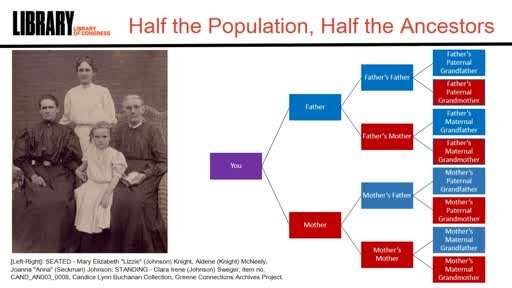Buchanan Estate Scam
During Great Depression of the 30’s, a grocer in Texas named Lorenzo D. Buchanan, announced that a valuable Buchanan Estate of 850 million dollars was to be distributed among eligible heirs.
“In such a period of economic hardship, the announcement was akin to shouting fire in a crowded theater”
Genealogical pandemonium ensued as Buchanans everywhere clamored to compile family trees that would prove they had a claim to the alleged estate. Sensational articles appeared in newspapers nationwide reporting how local citizens were among the entitled descendants anticipating enormous sums of money any day.
The details of the purported estate were vague and prone to alteration, but most adhered to a basic storyline involving a distant, mutual ancestor named William Buchanan had left an $850,000,000.00 estate. The money had reportedly been tied up in recently expired, 99-year leases of land throughout the United States. As the rumors evolved, the multi-state property interests shifted to focus on prime Manhattan real estate. Presumably because he was the most famous American Buchanan, most versions also said that the wealthy William was a relative of former United States President James Buchanan. Sometimes William was left out of the tale altogether and President Buchanan was said to have created the estate.
In 1931, the Library of Congress was so inundated with letters from hopeful Buchanans seeking proof of eligible kinship that the librarians prepared a standardized memorandum to be sent in reply, debunking the most common genealogical claims to the ambiguous benefactor. New York Surrogate Judges simultaneously overwhelmed by the frenzied Buchanans, determined that no such estate existed. They implored New York Governor (and soon-to-be Presidential candidate) Franklin D. Roosevelt to put a stop to the fraudulent scheme. Meanwhile, Lorenzo D. Buchanan signed an agreement with the United States Postal Inspector to return unopened the thousands of letters addressed to him and announced that he had “ceased all operations in connection with the supposed estate.”
These measures did not quell the chaos. Instead as Buchanan stepped back, self-appointed agents stepped forward and scams within the scam took hold. Agents offered to create genealogies and file claims in exchange for fees that took advantage of the already economically desperate, would-be heirs.
Significant among these was H. W. Cochran of Indiana, whose coordinated national campaign was rebuked for asking Buchanans to “donate all they possibly can” in exchange for his assistance.
A civil suit finally forced the issue when the case went to court in Houston, Harris County, Texas, in early 1936. Exasperated heirs demanded Lorenzo D. Buchanan present an account of the estate that he had promoted and show on whose authority he acted.
“Buchanan’s attorney denied that any such estate existed and turned the tables on the demoralized heirs by blaming them for their gullibility. ”
By excuse of poor health, Buchanan never appeared in court to explain himself.
The Genealogical repercussions
The generation of Buchanans who lived through the debacle suffered a roller coaster of hope and disappointment in a particularly trying time.
They received no grand inheritance to rescue them from the Great Depression and may have even increased their hardships due to supporting the scheme. Instead of benefiting from their ancestors, the bequests left to future generations were countless errant or outright fabricated family trees that continue to thwart genealogists today. Created with the intention of linking the living generations to a particular ancestor rather than to an accurate ancestor, many of these genealogies have been left in the family papers inherited by their descendants, enabling a cyclical repeat of misinformation with every new generation of researchers.
The essential lesson for all family historians is the necessity of doing one’s own research. Make the most of the family papers passed to you. Be grateful for, and give credit to, the work shared by other genealogists. But always do your own evaluation, seek out the original records, weigh the evidence, and come to your own conclusion. If you discover mistakes or issues, acknowledge the problem and address it. Explain your findings for the benefit of future researchers who will, in their turn, assess your contribution as they endeavor to explore the family history for themselves. Leave a legacy that helps rather than haunts your descendants.
Deadwood Pioneer-Times
Deadwood, South Dakota
08 Feb 1936, Sat • Page 4
The Evening News
Harrisburg, Pennsylvania
25 Jan 1932, Mon • Page 13
Indianapolis Times,
June 2, 1931.
James Buchanan of Indianapolis thought he was heir to the multi-million dollar estate.
The Frontier,
Holt County, Nebraska.
August 20, 1931.
More than 300 people in Lincoln County, Tennessee, claimed to be descendants of the fictional William Buchanan.
The Independent-Record
Helena, Montana
11 Sep 1932, Sun • Page 5
Images from Genealogy records of Gloria McAbee (click to enlarge)
August 1931
September 1931
Date unknown
October 6 1931
November 1931
November 1931
Date unknown
Date unknown
Source: US Library of Congress







